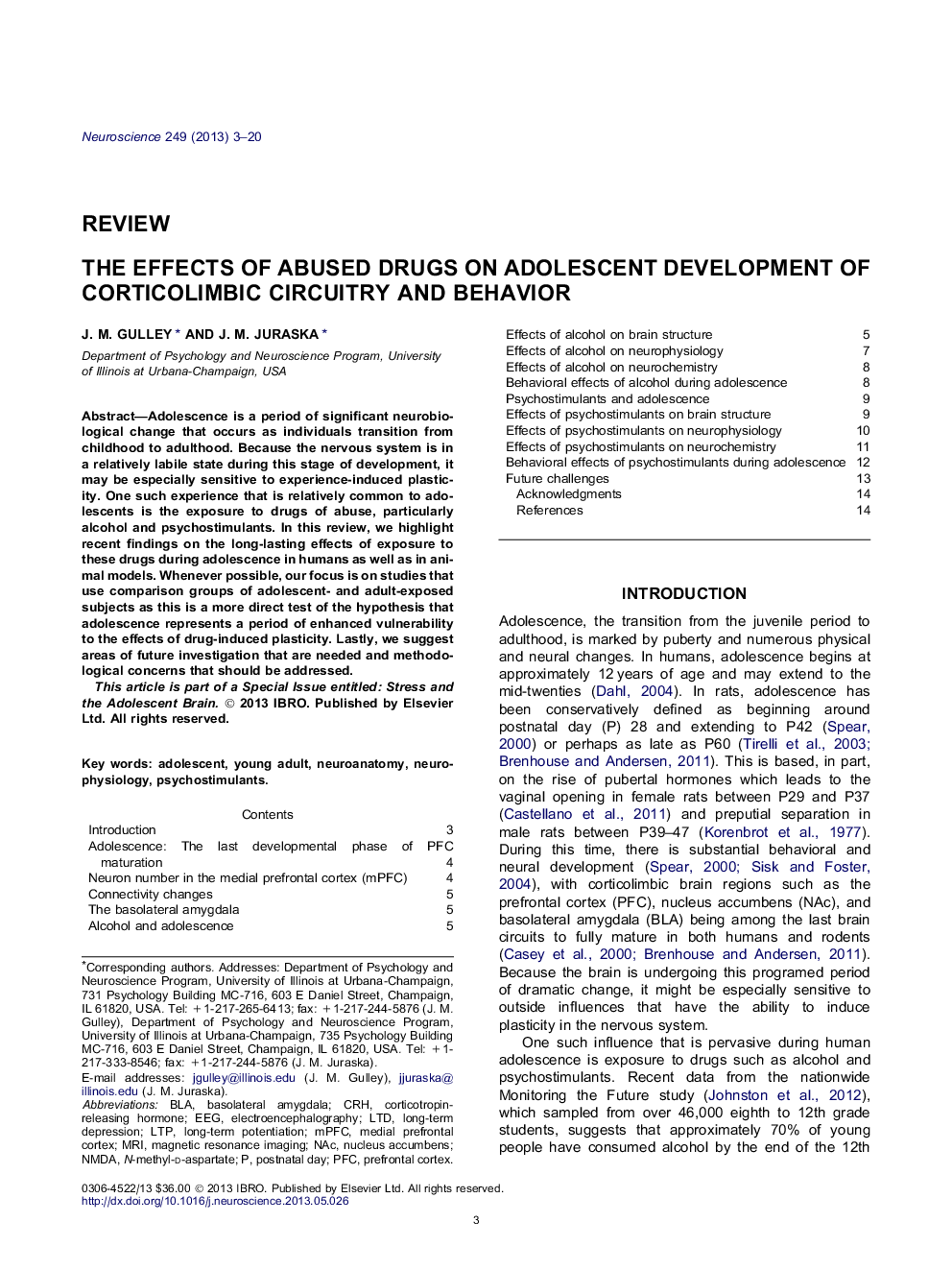| Article ID | Journal | Published Year | Pages | File Type |
|---|---|---|---|---|
| 4337884 | Neuroscience | 2013 | 18 Pages |
•Adolescence is a period of significant neurobiological and behavioral change.•Adolescence is a time when individuals first use drugs and alcohol.•Adolescents may be especially sensitive to drug-induced plasticity.•We review evidence suggesting adolescence is a period of high vulnerability.
Adolescence is a period of significant neurobiological change that occurs as individuals transition from childhood to adulthood. Because the nervous system is in a relatively labile state during this stage of development, it may be especially sensitive to experience-induced plasticity. One such experience that is relatively common to adolescents is the exposure to drugs of abuse, particularly alcohol and psychostimulants. In this review, we highlight recent findings on the long-lasting effects of exposure to these drugs during adolescence in humans as well as in animal models. Whenever possible, our focus is on studies that use comparison groups of adolescent- and adult-exposed subjects as this is a more direct test of the hypothesis that adolescence represents a period of enhanced vulnerability to the effects of drug-induced plasticity. Lastly, we suggest areas of future investigation that are needed and methodological concerns that should be addressed.
